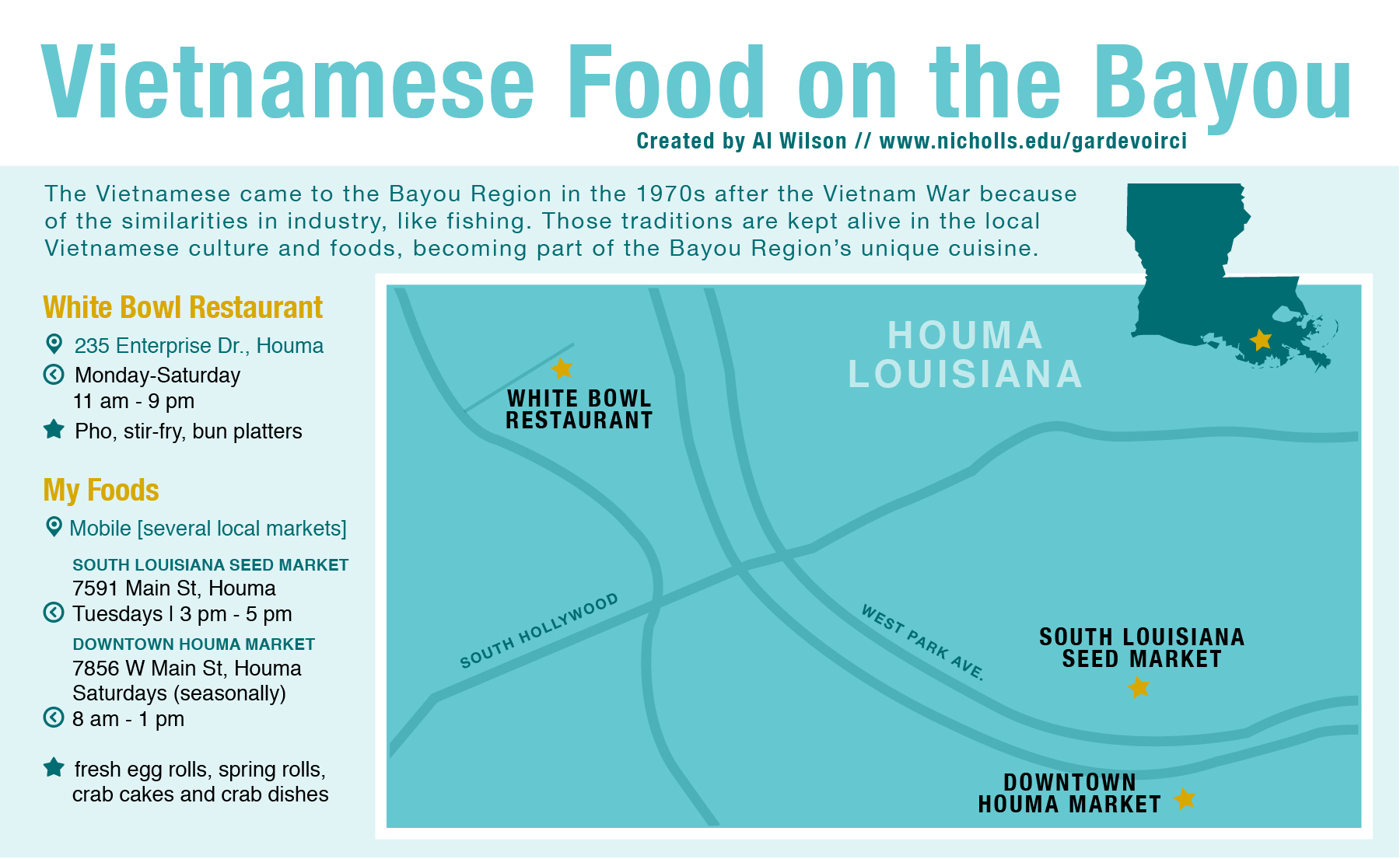
by Madison Boudoin, Staff Writer
Many refugees of the Vietnam War found themselves in the Bayou Region of Southern Louisiana, surrounded by rich Cajun culture and opportunities for work. The journey across the world was tough and risky, but it is greatly appreciated by the young Vietnamese generation living on the bayou today.
“It makes me feel grateful that I have the opportunity for a proper education and to pursue a career of my choice instead of having limited options,” says Tri Tran of Houma, whose family traveled from Vietnam to America.
Refugees were limited to specific careers in America due to a language barrier and a lack of education. There were only a few options to choose from. Unlike his father, Tri has the resources to choose any career path that he wants.
Tri’s father left Vietnam after the war, when the North began taking over the South. According to Tri, his father’s dream— a dream that was shared among fellow Vietnamese refugees— was to create a better life for himself and for his future family in the land of the free.
Thanks to his father’s escape from Vietnam, Tri is now pursuing a degree in business administration at Nicholls State University.
Tri says that the refugees came to America on over-crowded ships. Many did not survive the voyage. Disease and illness spread quickly aboard the ships because of the cramped living conditions. Other refugees were caught in dangerous storms and pirate attacks that left them dead according to the CBS Digital Archives.
Brandy Vo, of Houma, says that her parents sacrificed a lot to come to America.
“It makes me sad to think about the sacrifices that my family made to get here. They traveled across the world to a new location to make sure their future generations— my generation— would have a better life,” says Vo.
The Vietnamese searched for jobs upon their arrival in America. Groups of refugees fled to the Bayou Region for job opportunities, as they had very little money and clothing.
Refugees generally only spoke Vietnamese, so it was important to find work that did not require the English language. Many discovered careers in fishing, shrimping, and crabbing in the bayou’s seafood industry. This was also the best career choice for refugees who wanted to make a decent amount of money without needing an American education.
“The reason why a lot of refugees chose this type of profession is because they didn’t really need to talk to get the job done. A lot of body language was used instead. They simply watched the Americans do the work, and learned the profession from them in that way,” says Vo.
Vo learned Vietnamese from her parents as her first language. She didn’t learn English until she started Kindergarten. This made it difficult for her to fit in with the other children.
“I got teased a lot. Thankfully they had a program at my school called ESL— English Second Language— and this was how I learned to speak English,” says Vo.
Vo’s parents know very little English to this day. Her father is part of a fishing crew, and her mother works in a seafood packaging factory. Neither job requires fluency in English.
According to Vo, Vietnamese families contribute to the seafood industry of the Bayou Region, which is an industry that will never go out of style in Southern Louisiana— an area known for so many authentic Cajun seafood dishes.
Not only are the Vietnamese helping to keep the traditional Cajun culture alive through careers in the seafood industry, but they are also striving to preserve their own culture and traditions of Vietnam.
Vo says that Vietnamese communities are smaller on the bayou than in other areas of Louisiana, and they tend to stick to the traditional ways of the Vietnamese culture. This includes practicing Buddhism.
Chua Chan Nguyen is a Buddhist temple located in Houma, Louisiana. The temple serves as a place of worship for the Vietnamese communities in the area. People also gather at the temple to celebrate the Vietnamese Lunar New Year, the most important traditional celebration of the Vietnamese culture according to Vo.
“The Vietnamese community on the bayou remains very old-fashioned. A lot of Vietnamese still cook the same traditional food that was cooked in Vietnam,” says Vy Truong, a student at Nicholls State University.
Truong says that a few Vietnamese people on the bayou are slowly starting to break away from the traditional ways, but most are staying true to their culture.
